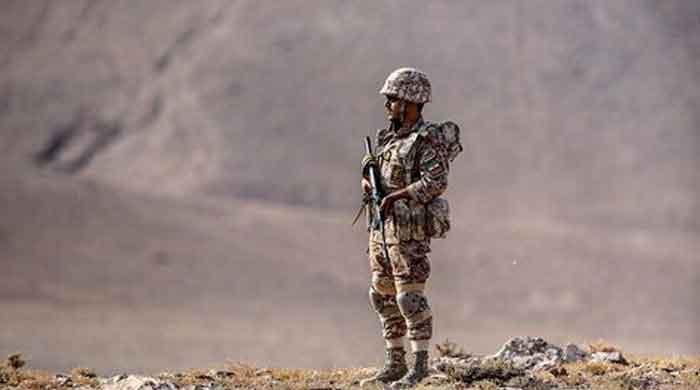Iran Rejects Discussion of Military Capabilities Ahead of US Nuclear Talks
TEHRAN: Ahead of a second round of discussions with the United States regarding its nuclear program, the Islamic Revolutionary Guard Corps (IRGC) in Iran declared on Tuesday that the nation’s military capabilities are not open for negotiation.
Ali Mohammad Naini, the spokesperson for the Guards, stated that national security, defense, and military strength are among Iran’s red lines. These aspects cannot be subjected to discussion or negotiation under any circumstances, according to reports from state broadcaster IRIB.
Iran and the United States are scheduled to convene for another round of talks in Muscat on Saturday. This follows a meeting of top officials in the Omani capital a week earlier, which marked the highest-level discussions since the collapse of the 2015 nuclear agreement.
Since his return to office in January, US President Donald Trump, who withdrew the United States from the 2015 agreement during his initial term, has reinstated his “maximum pressure” strategy against Iran.
In March, Trump sent a letter to Iran’s supreme leader, Ayatollah Ali Khamenei, advocating for nuclear discussions and cautioning about potential military action if Tehran declines.
Addressing reporters on Monday, Trump commented on Iran, stating his intention to “solve that problem,” characterizing it as “almost an easy one.”
The US leader also issued a threat to strike Iranian nuclear facilities and labeled Iranian authorities as “radicals” who should be barred from possessing nuclear weapons.
Iran has consistently refuted claims of pursuing an atomic bomb, asserting that its nuclear program is intended for peaceful purposes, particularly energy provision.
On Sunday night, the official IRNA news agency in Iran reported that the country’s regional influence and missile capabilities are also considered “red lines” in the ongoing talks.
On April 12, Iranian Foreign Minister Abbas Araghchi engaged in “indirect” discussions with US Middle East envoy Steve Witkoff in Oman, according to Iranian officials and media outlets.
These discussions represented the most significant Iran-US nuclear negotiations since the breakdown of the 2015 agreement, officially known as the Joint Comprehensive Plan of Action.
The agreement provided Iran with relief from international sanctions in exchange for limitations on its nuclear program.
Both Tehran and Washington, who have lacked diplomatic ties since shortly after Iran’s 1979 Islamic Revolution, have described the most recent round of negotiations as “constructive.”
Araghchi’s office has announced his plans to travel to Moscow later this week for discussions with Russia, a close ally of Iran and a party to the 2015 nuclear agreement.
Moscow has welcomed the Iran-US talks, advocating for a diplomatic resolution and warning that any military confrontation would result in a “global catastrophe.”



Comments (0)
No comments yet. Be the first to comment!
Leave a Comment